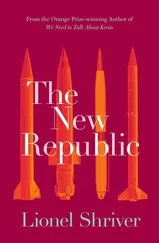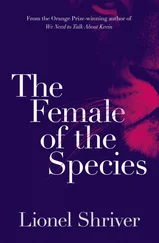In the scheme of things, Florence paid pretty minimal income tax herself, though it sure didn’t feel minimal, what with Social Security, Medicare, and state and local on top, while meantime Wall Street shysters connived to pay practically nothing. As for a pension that may or may not have been eroded by Alvarado’s address, its monthly stipend was far enough in the future to be abstract. Even if the Social Security Administration didn’t go broke again, the official retirement age was bound to keep moving forward, to sixty-nine, to seventy-two, to seventy-five, like a carrot tied before a donkey’s nose. The sole rescue in her decrepitude for which she held out any hope was trickle-down from Grand Man’s fortune—about which she kept her trap shut at Adelphi. (In college, her one reservation about adopting her mother’s surname, Darkly, in a failed bid to cheer her more fragile parent out of a chronic depression, was that rejecting Mandible might alienate her grandfather in a way that could backfire later on. Fortunately, the redoubtable old man had never seemed that petty.) Otherwise, she belonged to a generation widely betrayed, one with no reason to believe that anything but more betrayal lay in wait. Still. Something. Something was bugging her.
She didn’t think about being American often, though that may have been typically American in itself. She didn’t regard being American as especially formative of her character, and that may have been typically American, too. The Fourth of July was mostly an excuse for an afternoon picnic in Prospect Park, and she was relieved that next year Willing would be old enough that he wouldn’t be too disappointed if they didn’t go all the way to the suffocating crowds along the East River to watch the fireworks. For years now it had ceased to be controversial to suppose that the era of the “American Empire” was fading, and the notion that her country may already have had its day in the sun she didn’t find upsetting. Plenty of other countries had flourished and subsided, and were reputed to be pleasant places to live. She didn’t see why being a citizen of a nation in decline should diminish her own life or make her feel personally discouraged. She was duly condemnatory of various black marks on the US historical game card—the slaughter of the Indians, slavery—but not in a way that cut close to the bone. She hadn’t herself massacred any braves or whipped Africans on plantations.
This was different.
She felt ashamed.
Конец ознакомительного фрагмента.
Текст предоставлен ООО «ЛитРес».
Прочитайте эту книгу целиком, купив полную легальную версию на ЛитРес.
Безопасно оплатить книгу можно банковской картой Visa, MasterCard, Maestro, со счета мобильного телефона, с платежного терминала, в салоне МТС или Связной, через PayPal, WebMoney, Яндекс.Деньги, QIWI Кошелек, бонусными картами или другим удобным Вам способом.












